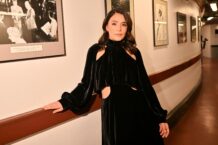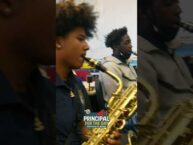No products in the cart.
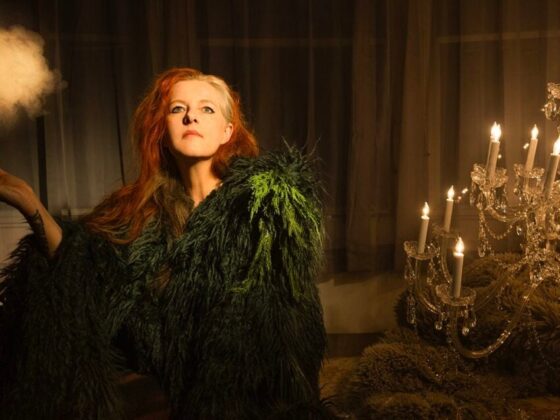
‘Death has so many gifts to give’: Before Boston show, Neko Case talks about life, love, and loss
Case, who recorded her new album at her home studio in Vermont, comes to The Wilbur Oct. 23.
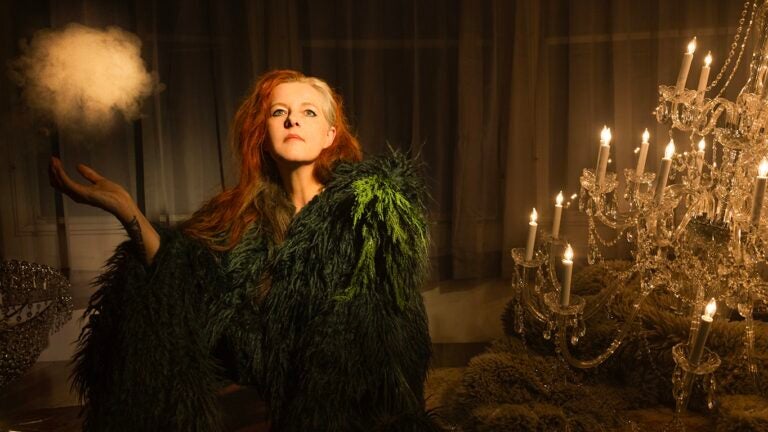
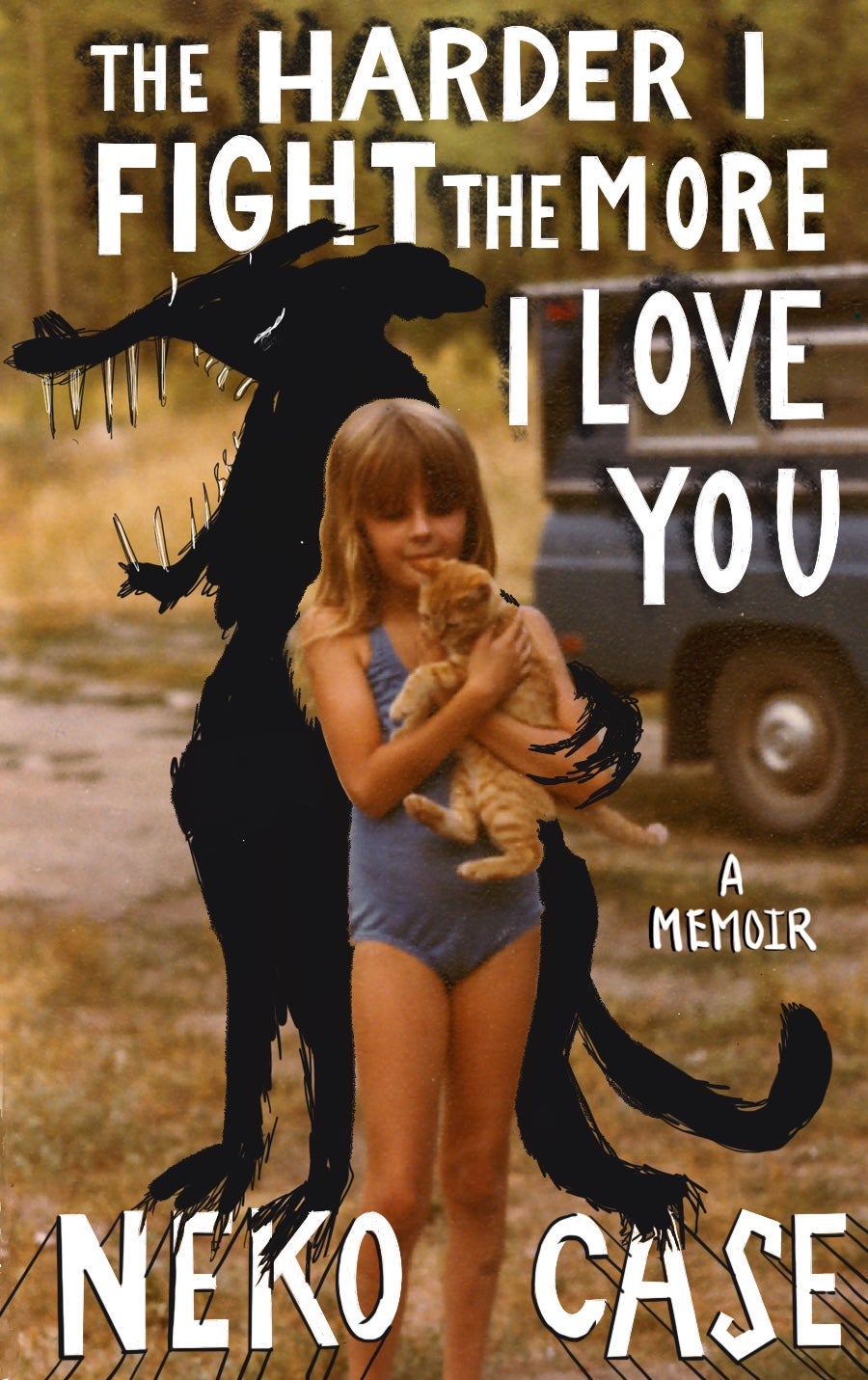
In Neko Case’s mesmerizing memoir, “The Harder I Fight The More I Love You,” released earlier this year, the singer-songwriter offers a colorful description of her unique and sometimes harrowing true family stories: “When I tell them they sound more like Eastern fairy tales — dark and funny. Feral and without a moral, just disappearance and sadness; bizarre little Technicolor landscapes.”
The details of her book, and her life growing up in the Pacific Northwest, are too fascinating to spoil for you here — if you haven’t yet, just read it. But it’s worth noting that the description above might also apply to much of her work, which began as sort of winking alt-country when she made her recorded debut on the 1997 album “The Virginian,” but on subsequent releases morphed into haunting, echoey “country noir,” full of sometimes-surreal trips down a rabbit hole of wild animals, ghosts, and ethereal moonlight.
Advertisement:
This was never truer than on her new album, “Neon Grey Midnight Green.” It features the oblique, hypnotic lyrics we’ve come to expect from Case — full of meteors, spiders, werewolves, and rusty mountains — but a larger, more expansive orchestral sound that makes listening to it a joyous experience, even as she acknowledges past traumas (“An Ice Age”) and the passing of some of her closest friends (“Match-Lit”).
It’s engaging, at times experimental, and often wondrous, like the artist herself. In advance of her show at Boston’s Wilbur Theatre on Oct. 23, Case — in between rehearsing her tour and working on the score for a “Thelma and Louise” musical — talked to us from her Vermont home and studio about life, loss, and the lure of New England forests.
Boston.com: I’m still digesting the new album, but I was just blown away right away by the sound of it. How much of that was in your head before you started?
Neko Case: Well, I knew I wanted a full orchestra, so I knew that was going to be a large sound. And when it became evident that the record was going to be a tribute to musicians and music, that was very appropriate. I didn’t know how big it would make things sound — I mean, I had an inkling, but I’ve never worked with a full orchestra before … Not that there’s anything wrong with, you know, making a string section on a keyboard, or overdubbing somebody a bunch of times — those things are cool too. But I just wanted to pay tribute to musicians, and I wanted people to remember what it sounds like to have a lot of people playing together at once.
What inspired you to want to do an album in tribute to musicians right now?
There’s just so little that’s handmade, and people, I think, have forgotten that music is made by people that are there to connect with you. But the streaming platforms aren’t really making it reciprocal. You know, we don’t get paid, really.
Which is insane, but okay.
I know. It is insane … but I also respect the fact that streaming is an incredible technology. It really is. It’s a really wonderful way to share music. Unfortunately, the people who own it are horrible people, like straight up warmongering Nazi sympathizers. So, you know, those are not people you want to give your money to to begin with … but people, they’re just too addicted to convenience.
Advertisement:
And I wanted to remind people that musicians show up to be with people, because we don’t just play for ourselves against a brick wall. You know, we need to complete the circuit — people enjoying the music and taking the music in. It’s like an alternating current in an engine. It cools itself … It isn’t just us playing for no reason. It’s us playing to the audience, receiving and giving back. And it’s a very magical feeling, and that is kind of a pinnacle of the feeling of community, I think.
And in a world where everything is a big box store or a chain, the place where you go see live music is often the last bastion of truly unique community in somebody’s neighborhood or in their city. So I really wanted to respect that, and remind people of why that’s so wonderful. And you know, it’s not that people don’t come see live music. I’ve noticed that people seem a lot hungrier for it, and I wish some of that would cross over into how people consume music and art, again, the way we used to, a little more.
In that vein, the art design for your vinyl albums feels very personally connected to you. Why do you feel like that’s important to focus on in this era where most people are getting their music from streaming?
Well, one of the things about streaming, and just invisible music coming out of a speaker is, you’re not reading the credits. You’re not finding out who played the bass, for example, and the person who played the bass is no less important than the person who wrote the songs and is singing … But learning the names of those people and pouring over credits and artwork was something that made me feel more connected to the music as a younger person, and I really miss that connection.
Advertisement:
And I miss thinking about what the band was thinking about the artwork that was representing their record — I just thought it was such a fascinating juxtaposition. And I just thought everything must be so intentional, which it wasn’t always. I didn’t understand that there were artists who did things and then the label would assign things, and some people don’t care what ends up on their record [cover], and some people are maniacal, like I am, and want to be a part of everything. So I always made records, even when it was mostly CDs coming out, in a way that it was like an LP, a side one, a side two, and credits and very detailed artwork, because if people were still craving that somewhere, I wanted them to get that. I didn’t want to cheapen things.
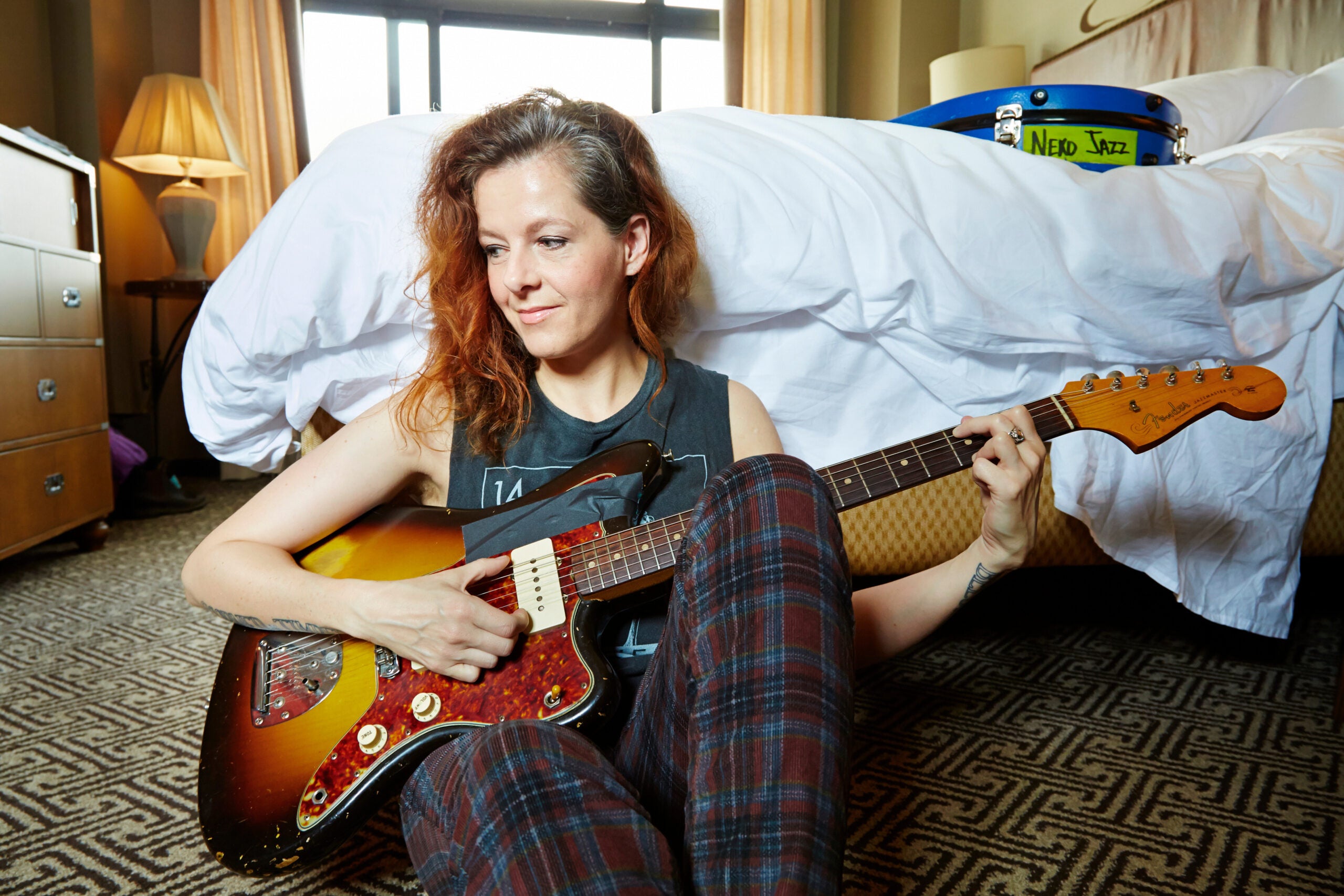
– Dan Hallman/Invision/AP, File
You talked about the album being about musicians, but it’s also about people who you’ve lost in recent years. What does it mean to you to be able to honor them and acknowledge them, through your music?
Well, honoring them, the people who’ve passed, is very unsatisfying in that there’s a lot more you can tell people while they’re still alive. And so a lot of that energy on this record was trying to make sure that, though I was paying tribute to people who’d passed, I also wanted to [acknowledge] that there are scores more living people who deserve that kind of praise while they’re alive.
I also don’t want to give people the impression that it’s a downer of an album, because it’s not. It’s very much a celebration.
It is, it’s very much a celebration, and it’s about joy. And you know, I’m a person who is not afraid of death, and I’m not afraid of other people’s death — I’m not afraid of that confrontation. And so I’ve come to learn that if you are open to dealing with the death of a loved one, and taking the feelings and feeling them and processing them, death has so many gifts to give you. Death is the biggest gift-giver of all. It is really unbelievably important and moving and life-changing, and I don’t mean that in a selfish way, like I’m going to get some gifts out of this. I mean more like the lessons, or just things you remember about your friends, and connecting the dots and realizing how incredible their lives were, or what they gave while they lived, or just thinking about, you know, what they would think about themselves in death. It’s like, there’s so much hilarity in death.
That’s a great way to put it.
It’s true — I mean, it’s the great equalizer. You know, we all die. It’s pretty funny, if you think about it.
I don’t know if this is the opposite of that or connected to that, but I liked how the press notes for the album made a point of saying, “Case isn’t anti-romance.” And I would argue that “Wreck” is a romantic song in many ways. But then on “Rusty Mountain,” you sort of eviscerate the entire concept of the love song. It has that great line, “We all deserve better than some love song.”
From the point of view of me writing them, yeah, and from the point of view of somebody who’s always looking for a different subject in a song, it’s hard to find … That’s what most people write, love songs or breakup songs, which are the same thing. And sometimes you just want to hear a song about, you know, eels or something. Sometimes you just want to break out of the heteronormative world of, you know, boy and girl love songs. And here’s something different. There’s a lot of really, really bad music about love out there. And the point of the song is, the people who are good at it are so good at it that you almost kind of feel like, why bother, you know?
[embedded content]
Taking the love song part of it aside, what are you trying to say about love in general on this album, if you had to narrow it down?
Oh, love is the great power. And I’m trying to remind people how powerful they are and how capable they are. And I want them to pick their arms up again and use them.
You had mentioned your point of view in terms of the songwriting. Just to give you a little background, I came on board with [the 2009 album] “Middle Cyclone.” When I started listening, I thought, “Oh, these are some great metaphors on here! The tornado is a person whose life is in disarray.” And then I listened some more, and I said, “Wait, I think she means an actual tornado.” But by not spelling that out, it makes for a more enriching listening experience, in my opinion. Do you tend to have a particular idea of how you think a song is going to be interpreted, and have you ever been surprised by the way some of your songs have come across?
When people really think about stuff, and they come up with something, even if it’s not what I thought, I’m always really impressed with the parts of their imagination that they inserted in there. And that’s always a good sign, too, because it makes people feel like they’re part of the song, and it means they probably really engaged with the song, and that’s really great, because I try to leave those holes for people to wear the song like their poncho — like it’s theirs.
Advertisement:
I’ve only ever been dismayed by laziness … I wrote a song about killer whales and, and I think I said, “I’m a man-eater.” It’s a song about killer whales! But the writer was like, “Case, spurned by a lover …” Ew, women don’t just write about love, gross! It’s just gross. But other than that, if people come up with wild ideas about the songs, I’m always like, “Well done!” I would never think of that, but that’s pretty amazing!
There are so few people who are writing in that sort of oblique way, where you can put yourself into the song — most songwriters just lay it all out there.
Well, it’s also that sometimes saying things exactly as it is doesn’t capture the feeling — the English language fails. And so what you have to do is, you have to build a different sentence with other words in the English language to capture the feeling. And I mean, that’s what art is about, is building different languages out of the languages you have at hand, right? And sometimes it really resonates with people, and sometimes people are like, what is she talking about? But, you know, both ways are acceptable. I’m not expecting people to have some crazy, life-changing experience, necessarily. I just really want to comfort them. I want to be the voice in the dark that was there for me.
And who were those voices for you?
So many! Yeah, where to start? Radio in general. And when I was a young person — I wouldn’t know where to begin! I always blank out at that question, like “Uhhhh…”
You mentioned Debbie Harry in your book, and I felt like I heard some of her influence on this record.
That would make sense. Absolutely. I love Debbie Harry. I love Blondie, I love their pop music, but there’s so many bizarre twists and turns that you don’t expect. Yeah, and it works, and it’s great.
You live and recorded much of the album in Vermont. Could you talk about your history and relationship with New England?
Well, I have a very longstanding relationship with New England. My stepfather is from Adams, Massachusetts, and I’m very tight with his family. And so I was out here a lot as a kid, and we lived in Vermont for a time when I was young, in like fifth and sixth grade, and I just always wanted to come back. I missed it. It felt so homey and kind to me — there’s something about the forests here that I really am drawn to. And so that’s what brought me back.
Advertisement:
And then I own my own studio here, and this was the first time I ever made a record pretty much entirely in my own studio, which was really exciting — exciting in that way, where you’re really excited when you’re wearing your pajamas, that kind of excited.
You’re playing at The Wilbur in Boston Oct. 23 — what can people expect when they come out?
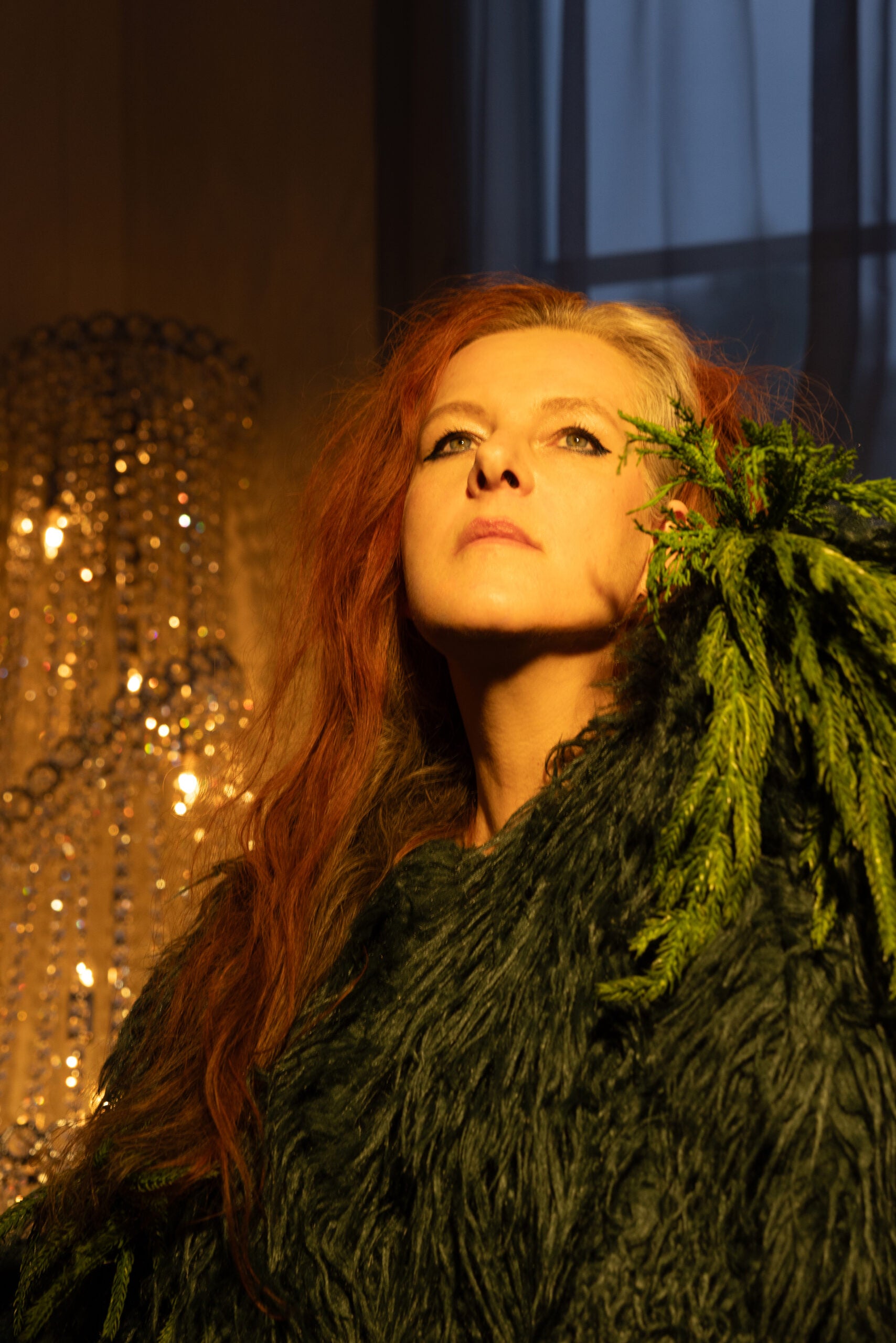
Well, I don’t have an orchestra, but luckily, sonically, being on stage, you can make a way bigger sound on stage with less people than you can on a recording. It’s kind of like how the camera adds 10 pounds — the stage adds 10 players. So we’re not going to have an orchestra, but we’re going to try to keep the songs the same, shapes that fill the same sonic space. We’re not going to have huge string sections or anything, but hopefully it will still give you that emotional feeling.
It’ll be different, but it, you know, it’s supposed to be different … I’m just really excited to finally get back on the road with a new record. So I’m just kind of furiously excited.
The above interview has been edited and condensed. Neko Case plays at the Wilbur Theatre, 246 Tremont St., Boston, on Thursday, Oct. 23 at 8 p.m. Opening will be the Washington, D.C. band Des Demonas, and “you don’t want to miss them, because they’re incredible,” Case says. For tickets and information, visit thewilbur.com. You can subscribe to Case’s newsletter, “Entering the Lung,” on Substack.
Need weekend plans?
The best things to do around the city, delivered to your inbox.


